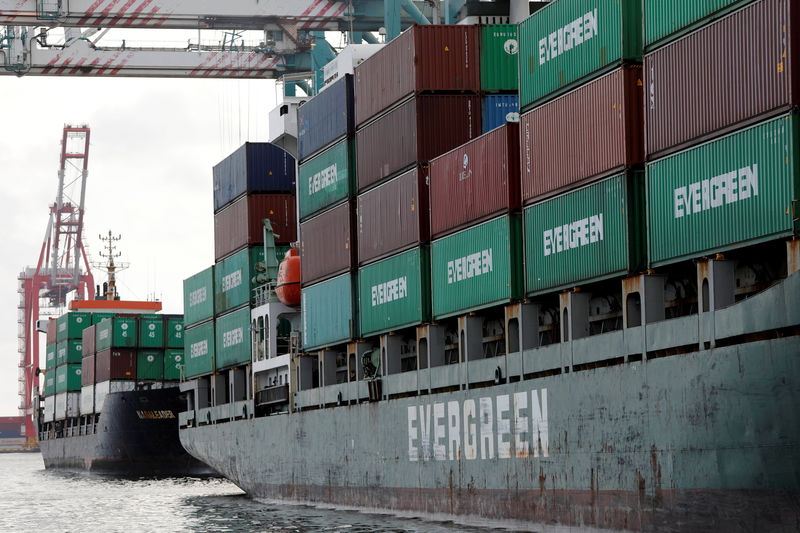By Liang-Sa Loh
TAIPEI (Reuters) - Taiwan's central bank and Ministry of Economic Affairs have set up a group to coordinate stepped up purchases of U.S. goods, two sources said, as its seeks to reduce its trade surplus and head off being labeled a currency manipulator.
Taiwan was last labeled a currency manipulator by the United States in December 1992 and was then on the U.S. Treasury monitoring list in 2016 and 2017.
Taiwan's trade surplus with the United States this year is expected to pass $20 billion, meeting one of the criteria Washington uses to qualify for being on the monitoring list for a currency manipulator.
In the first nine months of this year the United States recorded a $17.4 billion trade deficit with Taiwan.
Taiwan is eyeing increased purchases of U.S. oil and natural gas, soybeans, corn and military hardware, the sources, who are familiar with the matter, told Reuters, speaking on condition of anonymity.
Taiwan will "step up imports, including aircraft, agricultural goods and so on", one of the sources said, referring to imports from the United States.
Taiwan's central bank declined to comment and the Ministry of Economic Affairs did not respond to requests for comment.
Trade-reliant Taiwan's exports to the United States rose 18% in the first nine months of 2019 from a year earlier, partly boosted by orders shifting to the island from China as manufacturers have sought to avoid higher tariffs resulting from the U.S.-China trade war.
Crude oil and natural gas purchases from the United States are expected to be among the big ticket items, another source said.
An official at Taiwanese refiner CPC Corp, who asked not to be identified by name, said that as a state-run company, they would fully cooperate with government policy.
Taiwan's current account surplus is 11% of GDP, which also matches another criteria to be labeled a currency manipulator, as the threshold is 2%.
CPC Corp announced a deal last year valued at $25 billion to purchase liquefied natural gas from the United States over the next 25 years.
The deal was aimed at boosting trade relations with the U.S. by reducing its trade surplus, and was also a sign of goodwill ahead of a visit to the United States by Taiwan President Tsai Ing-wen, a person familiar with the government's thinking told Reuters at the time.
The United States is the largest source of military equipment for Taiwan, despite strong opposition from China, which claims the island as its sacred territory.
The U.S. State Department has approved a possible $8 billion sale of F-16 fighter jets to Taiwan, the Defense Security Cooperation Agency said in August.
Taiwan was the largest beneficiary of "trade diversion" with $4.2 billion in additional exports to the United States in the first half of 2019, according to a U.N. study.

Investment from manufacturers who moved part of their factories to Taiwan from China had reached more than T$690 billion ($22.58 billion) in 2019, the government said this month.